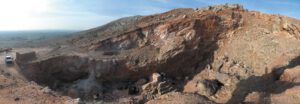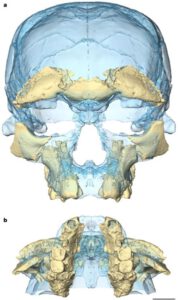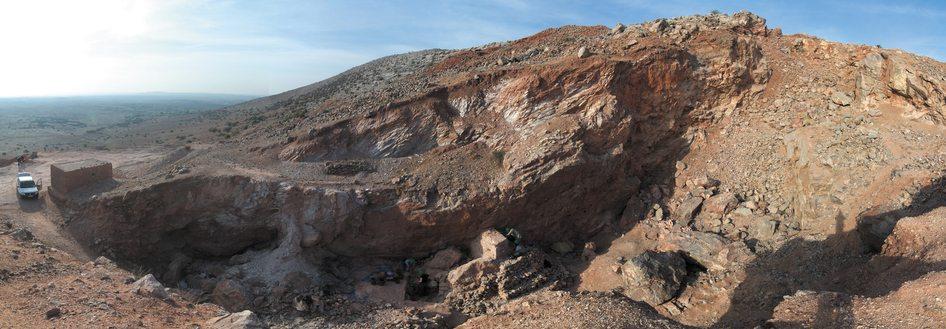Bones found in an old mine at Jebel Irhoud in Morocco have scientists rethinking their understanding of mankind’s origins in Africa —

A view of the site at Jebel Irhoud where the bones of early humans were found. Photo: Shannon McPherron, MPI EVA Leipzig
indicating that our story there is much more complicated and goes back longer than we once thought.
The fossils — the oldest homo sapiens remains ever found — counter the idea that modern humans emerged 200,000 years ago in one verdant valley in East Africa.
Instead, the find points to the possibility that modern humans emerged as far back as 300,000 years ago, and in multiple places across Africa. Our origins were not in one “cradle of civilization,” according to the researchers.
“There is no Garden of Eden in Africa, or if there is a Garden of Eden, it’s Africa,” said paleoanthropologist Jean-Jacques Hublin of the Max Planck Institute for Evolutionary Anthropology in Germany and the lead author of the studies published in Nature. “The Garden of Eden is the size of Africa.”
Not everyone agrees, suggesting that perhaps North Africa is the site of human origin, but the findings in the journal Nature, are only the latest  in a series of archeological and DNA inspired discoveries in the last five years that have significantly altered our understanding of human history.
in a series of archeological and DNA inspired discoveries in the last five years that have significantly altered our understanding of human history.
From genetic evidence of intermixing between modern humans, Neanderthals, Denisovans — and possibly other now extinct archaic humans — to new fossil remains of Homo naledi, perhaps a primitive offshoot of our direct lineage, found at the so-called Rising Star Cave in South Africa. Each new bit of information has added greater complexity to the already interesting human story.
In truth the findings fill in gaps in both the fossil and genetic record that scientists are using to trace back to the dawn of humanity. The human family tree is much more complicated, and interesting, than we thought. It includes many twisting branches, some that lead to now our extinct archaic human cousins, some that curve back into our own lineage.




